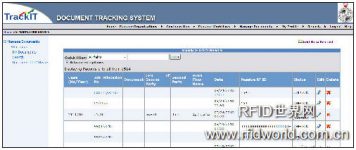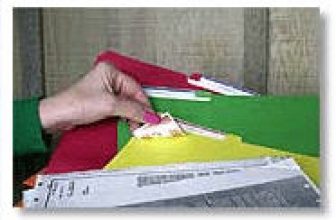
Launch of the first RFID document tracking system in the Middle East
[ad_1]
The Bahrain Survey and Land Registration Bureau (SLRB) is located in Manama, the capital of the country, and is the government agency responsible for land registration and deeds. SLRB now uses RFID to track the classified folders that store land records, deeds, and other official documents (circulated in the office building of the institution). According to the project’s system integrator Almoayed Group, this application is the first document tracking system implemented by the Middle East government.
SLRB pastes an adhesive label containing an EPC Gen 2 RFID chip on the classification folder. When Bahraini citizens submit paper documents to the SLRB and the application is processed, the agency creates a new folder. Due to the country’s real estate boom in the past 10 years, the number of documents has greatly increased.
The SLRB bureau uses TrackIT Solutions’ TrackFile file tracking system. According to Husain Ragib, project manager of Husain Ragib, a Dubai company, this system can prevent file loss and improve file processing efficiency by providing workers and managers with real-time information about the physical location and processing status of 25,000 mobile files.

TrackFile file tracking system by TrackIT Solutions
As documents flow through various processing steps, the data collected by RFID can be used to track the progress of document processing, such as documents entering the processing flow or managers approving a contract. If an administrator searches for a document in the system, Ragib explains that the processing records of the document can be displayed in chronological order.
The processing time for approval at each stage of the contract can be compared with the average processing time stored in the system. In this way, if a document is found to have stayed longer than expected in a certain process, the staff can intervene. The average processing steps for each document are 5-6 steps, Ragib said. If a step is missed during file processing, managers will also receive an alert. “Before the system is installed,” he said, “managers cannot understand which processing steps are taking too much time.”
Before installing this system, Ragib and TrackIT conducted a feasibility test in February 2009 and implemented the system in July last year. The system is based on Microsoft BizTalk Enterprise Suite and uses 28 Motorola XR480 fixed RFID readers. The reader covers the main area of the 7-story building and is installed at the entrance and exit of the building, including the entrance to the parking lot. The readers are installed on the entrances and exits or near passages and bases of 34 offices.
In addition, SLRB also uses 20 desktop readers, but Ragib declined to disclose the models of the readers and tags used in the project. When the processing staff brought the documents to the desk, they immediately read the RFID tags. The system then updates the location of specific files. When the document is moved to another table, the worker again uses a desktop reader to read the label. The document adhesive label contains an RFID inlay, with SLRB LOGO printed on the front, and is pasted directly under the file folder.
According to Ragib, the main benefit of this system is improved workflow management. SLRB had considered adopting a barcode scanning system, and finally chose RFID in the hope of eliminating manual participation and avoiding mistakes. Employees can use this new system with almost no training, and managers are required to receive training in TrackIT workflow management software.
SLRB plans to match this system with the national ID card system, where smart ID cards store personal data, such as names and birthday dates. Once linked with document tracking, personal information will be automatically transmitted to the document tracking system, eliminating possible errors in the data input process.
In addition, the SLRB Bureau also plans to label 200,000 files stored in the office, and the time frame of the project has not been set, Ragib said.
The SLRB Bureau is not the only organization that uses RFID to track documents. The American University of Sharjah and more than a dozen other universities use labels in their graduation certificates to ensure the validity of documents and speed up the registration process.
[ad_2]




